Blessings and Transmutations: An Interview with Fox Maxy
For my first commission as Editor-in-Residence of Topical Cream, I wanted to highlight exciting new voices who are working across genres. Camila Palomino is a thinker who connects art to politics in refreshing ways. When we discussed this commission, she was eager to interview the filmmaker Fox Maxy, who creates moving image essays that are deeply personal, poetic, challenging, humorous, and sexy. Fox’s first feature film Gush, which premiered earlier this year at Sundance, takes from the forms of documentary and diary, but is also something else completely. In this conversation, Camila and Fox talk about how film can offer a way to ride the waves of feeling, working through and documenting the traumas and joys of life.
– Ruba Katrib, 2023 EIR
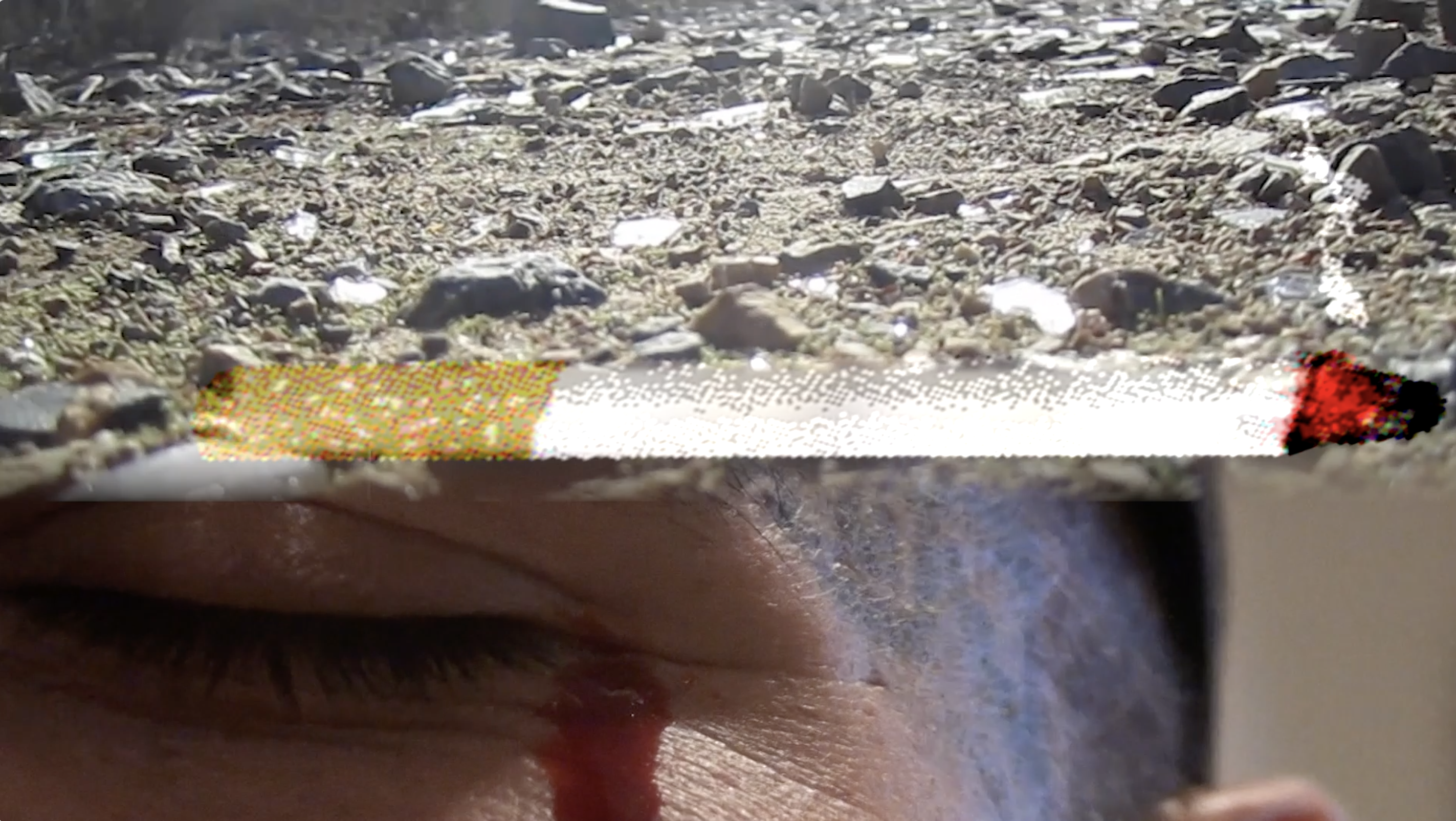
I sat down with Fox Maxy in April, on one of the first sunny spring days in New York City. Fox and I have gotten to know each other through her Borderlands Fellowship at the Vera List Center for Art and Politics, where we have been working together to support her forthcoming film project. In this excerpt from our conversation, we have fun talking about music and iconic TV moments, as well unravelling topics around intimacy, fighting, and making images, all through reflecting on her recent films and a look of what’s to come.
Camila Palomino: At this point I think I’ve seen almost all of your films: San Diego, F1ghting looks different 2 me now, Maat, and as of yesterday, Gush. There are so many links to get into between these films, and you made them all in the last four years!
Fox Maxy: I exploded! There was a time when I left New York, and I felt like my whole body was just ripping apart. I was like, What the fuck is going on? Where am I going? I’m never gonna have a career again. I thought I was gonna be living outside in a teepee in North Dakota, protecting land and water or moving around to different land protection camps. I feel like it just forced me to turn inside out. There’s nothing left of what I used to know or what I used to do. It was a fresh start, but it was very scary, confusing, and dark. But then it came around and turned into feeling like, Everything is limitless! This explosion …That’s how I felt. It’s kind of happening again. I don’t know what’s coming, but I feel a transformation coming next.
Did you hear about the corpse flower blooming this weekend? The one in New York is blooming for the first time in years.
I know him! What the hell! He did do it before! It’s incredible the amount of press this guy gets.
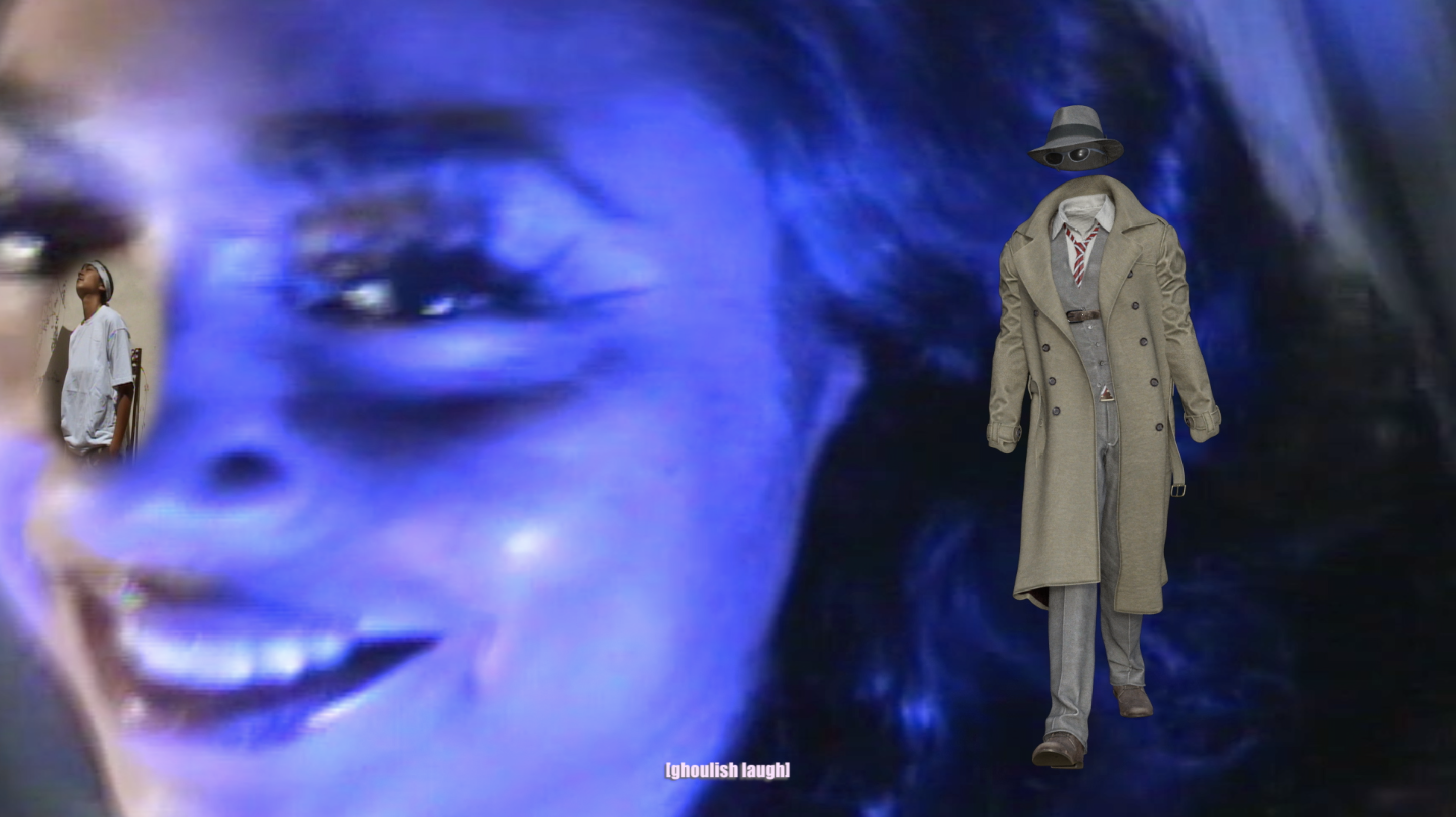
I mean, he’s just been taking time to just like …
Rot!
Yeah, rot! Do something else, and be in a different version of your life. And then, bloom!
And it was gorgeous— this is not what I expected. And now I’m learning that’s just what it is. I can’t know what’s gonna happen. But I have to switch mindsets to be like, whatever it is, it’s gonna be the best possible outcome.
Yeah, and taking your time. Things need to rot, decay, decompose …
Absolutely, turn into the ground again and then, whatever was in there, die, and then you come shooting back up again. It’s crazy! I mean, being alive is wild!
I feel that! Watching your films—especially Gush, I had so much fun being there. I don’t even know I can call it watching, it doesn’t feel passive. You’re telling a story with these collages of footage and music, and people laugh and start moving and singing along. Are you having fun when you’re making your films?
I am. I always say, editing is the shittiest part for me, because it’s so grueling. With computers you’re always gonna have a problem.
Is that the rot, too?
Mmhm! You’re just sitting on your ass staring into this flat thing. I had a bit of work experience with Adobe programs, and I was teaching myself how to use them in my early films, so there was this frustration of how the fuck do I do this? There’s so many things I want to do and then like, I gotta watch a YouTube video. But then maybe the person’s voice is annoying, so then you gotta switch to another one.
In the past, especially in my earlier films like San Diego or Maat, I feel like that was coming from a place of just sheer anger, frustration—a lot of negative stuff. Now editing Gush, I’m like, no. I can still rot, which basically means resting for me, but it doesn’t need to be so heavy. It is actually really beautiful that I’m able to do my work and make weird shit and people want to see it, and I’m getting paid sometimes! So why sit here and be frustrated—I already did that! Now, it’s way more fun, and I’m being more conscious of like, let’s not block the blessings. I don’t have to be a bitch all the time, like let’s just be grateful and get the shit done, you know, go at my own pace.
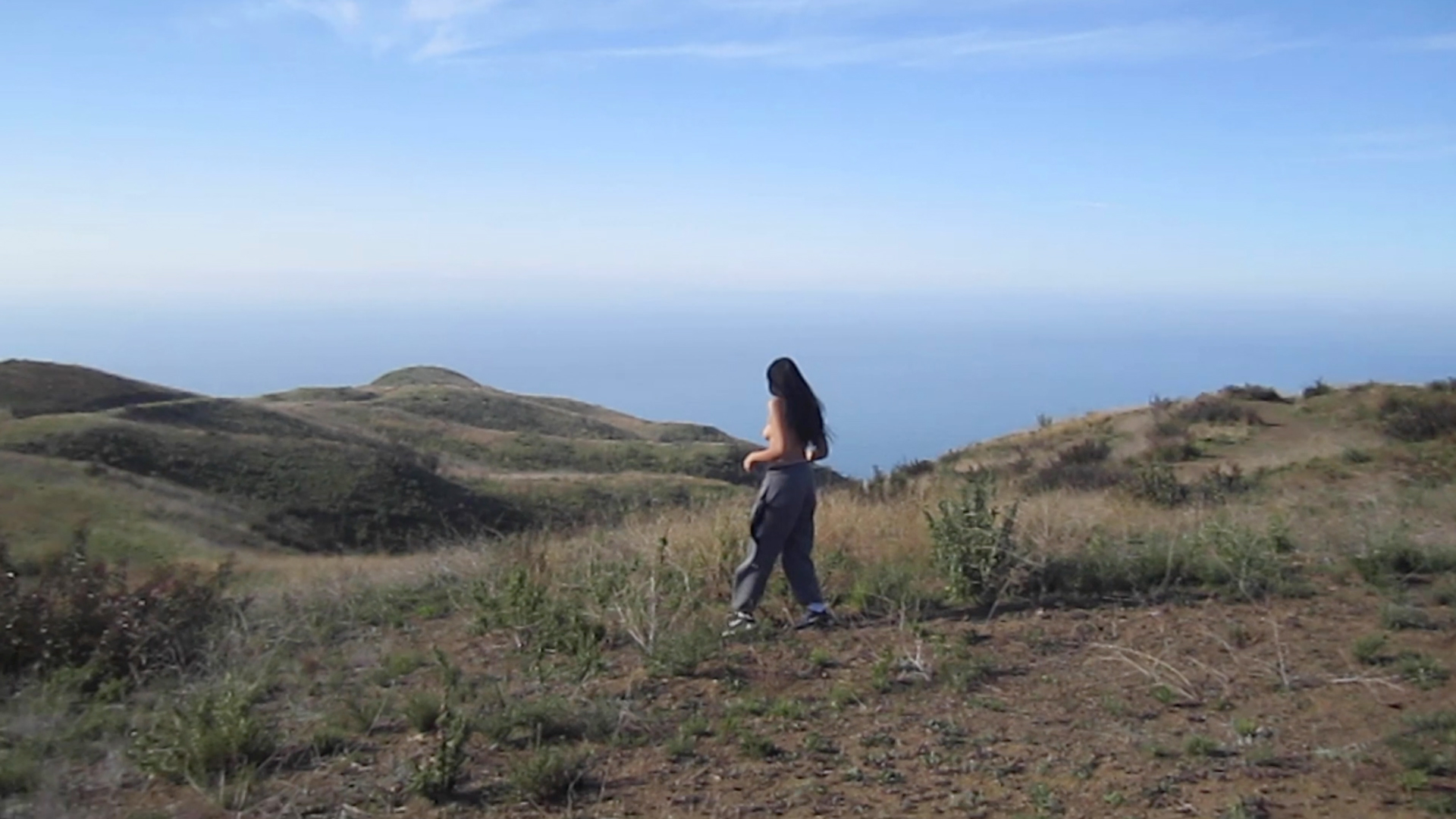
It’s interesting to hear how you were figuring out those softwares, and that San Diego was your first film. In it, you were looking at many things at once. There were Facebook videos, transmissions from Native folks sharing messages of support during the early pandemic through song and dance. There was Dolly Parton sharing her blessings, shared by a family member of yours. There were also video game simulations of these firefighters …
Yeah! Yes girl!
The combination of material was surprising! Then there was drone footage from Standing Rock that was made by law enforcement, making it so evident how technologies such as drones have been developed by the U.S. military with the purpose of surveilling and causing harm.
Literally! And tricking us!
You jump between that footage and on-the-ground recordings of abuse by police and private military, but then also archival material of a woman collecting acorns to make wiiwish, or acorn pudding. It felt to me like you were thinking through how these images and technologies could be liberated from the harmful intentions of power. Not only with the drone footage, but I’m also thinking back to how Facebook became a highly politicized space, especially in 2020 with disinformation and hate speech. How do you navigate and think through the ethics and contradictions of imaging and media technologies?
There are so many things that held me back from making things before: Oh, this is a moral issue or Is this mine to use? I think about that all the time. My dad, Lawrence Hinman, is an ethics professor. He made a website, ethicsupdates.net; it was one of the first websites that would come up when you googled ethics or philosophy back in the days when the Internet was just starting to form. He definitely dedicates his life to asking questions and holding good hearty discussions, so he passes that on to me. And then thinking about using what I see, everybody’s like, Oh, you use found footage. I know, and I look at that stuff! I’m looking at it, and now I’m showing you what I’m looking at.
The sheriff footage took me three years to look at. After Standing Rock, it was so hard to move on. We had to watch the whole thing burn. We burned it down, you know, but then we watched everything get bulldozed. We literally watched everything go. And then we had nowhere to go and we all got separated. Everybody had to go back to America, and a lot of people are now gone, too. It was so painful to think, damn, that’s over. That was the happiest, most crazy, intense, most gorgeous experience of living with no time, no money, and all Indians. It was so weird leaving that place and then having the Internet—Shout out to the Internet, the World Wide Web!—because literally, you could find all kinds of shit.
When we were down there on the ground, there were helicopters flying all day, all night. For years, I couldn’t hear a helicopter without being traumatized. And they were filming us, but I didn’t think of that at the time. So that’s one way of looking, and then there was also us spreading information through social media. The internet helped us stay alive. It helped us stay safe. The Internet helped us get food, money, you know? So it’s cool to me that, years later, I had the strength to be like, Oh, let me look back at this. I was just googling stuff and going on YouTube. Whoever uploaded that footage to YouTube—I don’t know who you are, I don’t know why you did this, I don’t know what the intentions were, but I’m grateful that it’s there. To me it’s really important for people to see those images of us, mainly the men, being chased and being demonized, and tricked. Things were placed on them, and they were put in harm’s way, and that’s what those images were.
At that time, I wanted to put it out there with the intention of just love and care. So much of the editing, the emotions behind why I made the film, were negative. But in the making of it, something happened where I went back to that feeling of being taken care of and knowing that there’s a good plan, even if you don’t know or can’t see it. I think the word for this is transmute—that’s been a buzzword for me. That’s where so much of me watching stuff comes from. I’m just hungry for something good, something solid, nutritious, and sweet. I think that’s why I always have YouTube videos playing in the background. It’s a trip that these things are available to us. We could call it “found footage,” but it’s also tools.
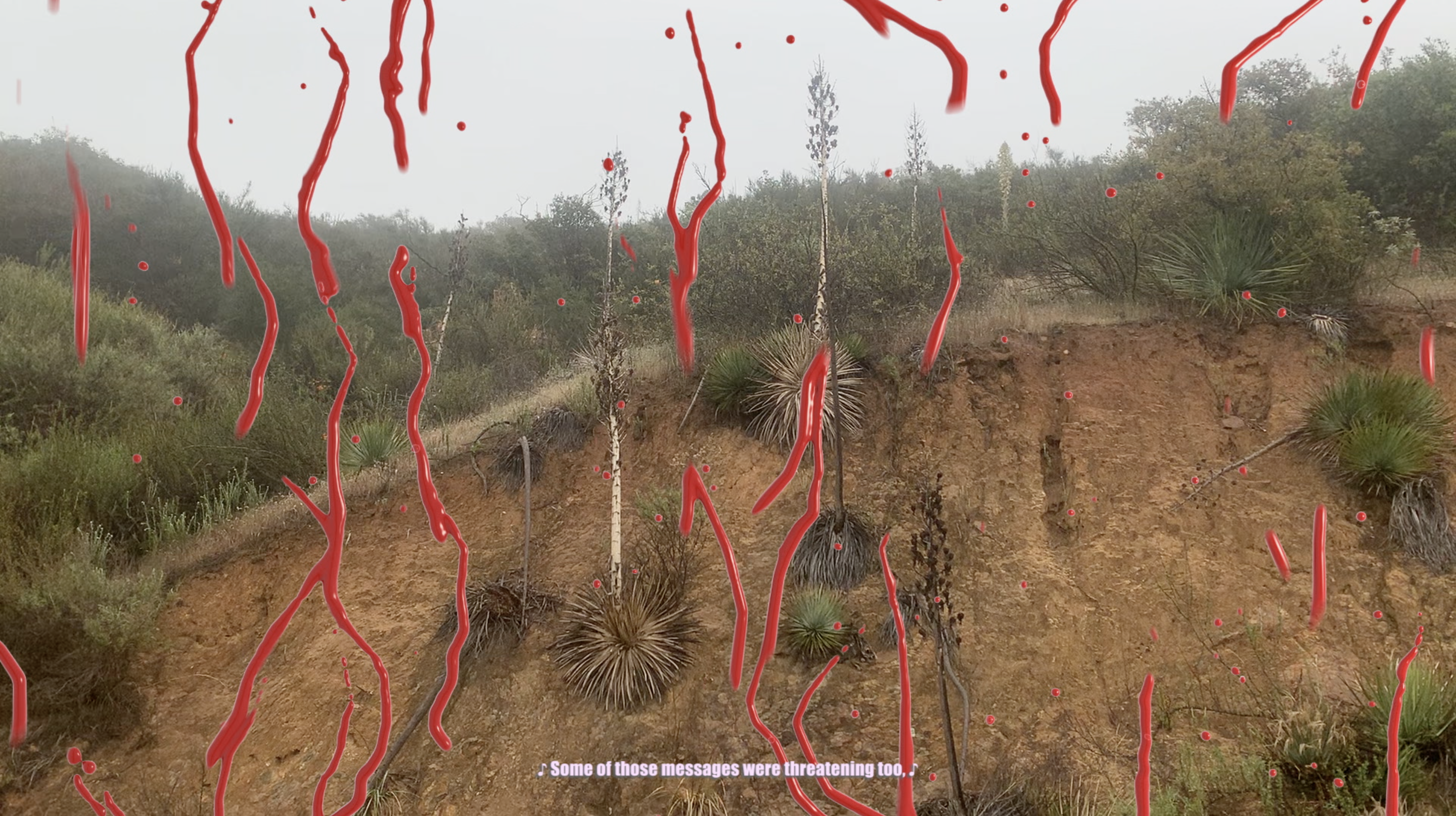
I’m thinking back to Standing Rock and activists like Myron Dewey and Digital Smoke Signals who used drones to document police violence, create awareness and accountability, and above all protect land, water, and their communities—like you said, supporting good feelings amidst the contradictions of these technologies.
Hell yeah, because I don’t know how else to go on, there’s gotta be some little sweet chocolate chip somewhere. It’s funny, there’s a woman who did a lot of research on our history and California and bloodlines. She had found all of these newsletters from the mission era. The missions were a system of murder. You know, we built California and when the men, women, and children got tired, they would kill us and put us in large pits next to the missions. Underneath San Diego are mass graves. During this time, there was a priest that ran the mission in Riverside. And he, I don’t know what the word is, but he felt bad for the Indians and started a newsletter for Indians.
To be Indian was dangerous, deadly. But there was this newsletter that would allow people to send in whatever happened. Maybe a man got bitten by a rattlesnake on this ranch. How else were the Indians gonna know? I can’t imagine living like that—you might be hiding, you might be running from people, you might be pretending to be Mexican, you might be having to leave your traditions, your culture, your language, everything. So it’s like these layers of chaos, danger, and violence. But within that, there’s this newsletter that we were flipping through, and we can see our family members and little things that happened with them. That’s so fucking cool. But writing shit down was not and is not ours. It’s a system that is imposed, you feel me? Also the priest, the mission, the whole system, and even the whole idea of dispersing people’s business in that way—those things are all imposed, too. But it’s like, how do we use these tools for us and for our survival or for comfort? There’s some level of that within the bullshit. I feel like it’s always happened. No matter what format of media or mediums, you know, it’s always cool to see people flipping the script. Because there’s no point in being like, This is bad. That’s also part of moving on from North Dakota, moving on from those times where I was so focused on being like, I gotta tell everybody! I gotta let them know! I gotta change their minds! No, I can’t, and it’s okay. It’s moving on from that, moving on from the anger, bitterness.
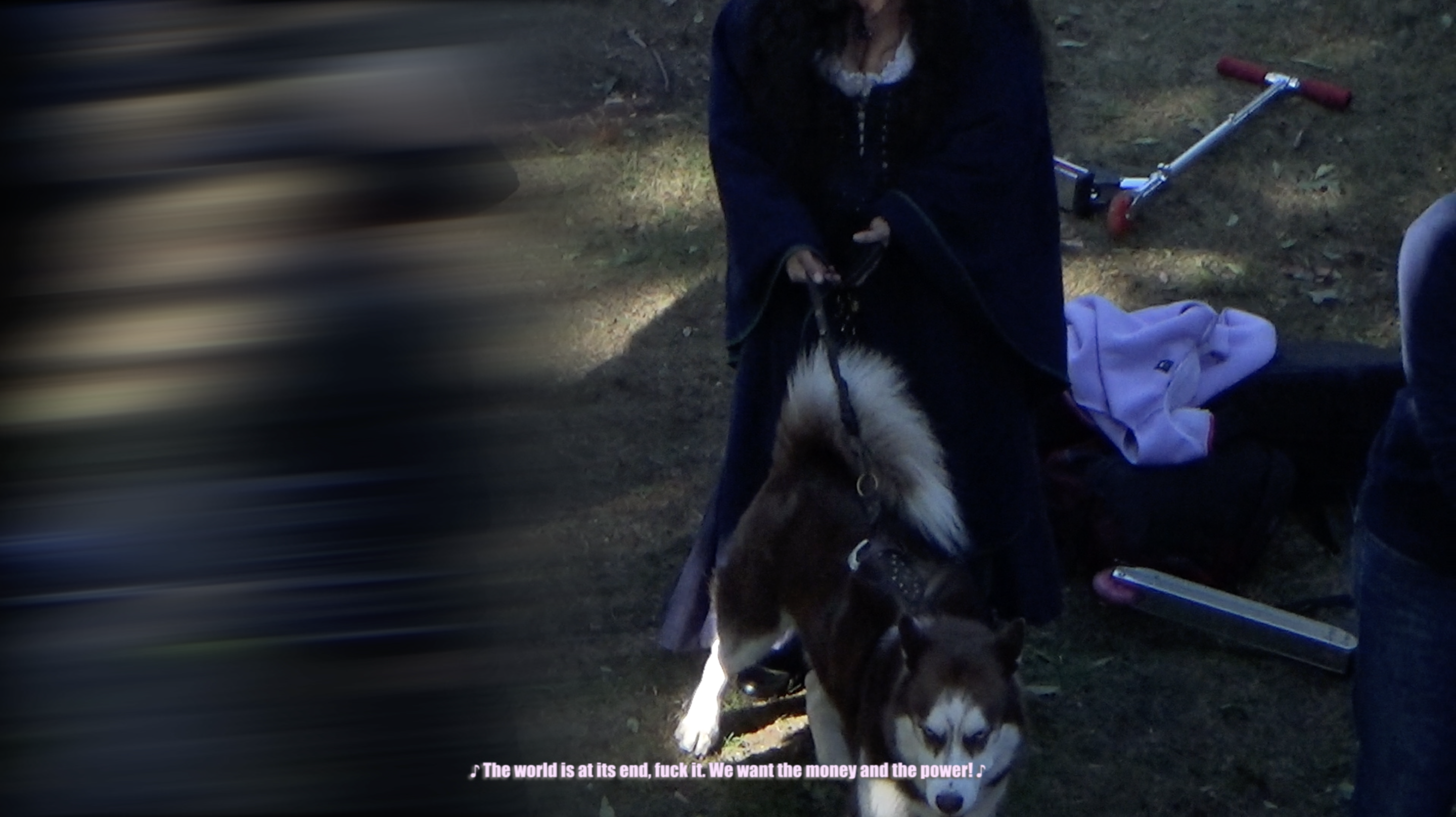
You have a film that’s called F1ghting Looks Different 2 Me Now, where there was so much confrontation, documenting the powers against you, fighting things that, like you said, can’t be changed by one person. Moving on from fighting: one of the recurring parts of Gush is this 2005 interview between Tyra Banks and Naomi Campbell, on Tyra’s show, which was supposed to “end the feud” the media and Tyra created between the two supermodels. I was thinking about how you included so much of that interview throughout Gush. What does reconciliation mean to you?
I don’t know what that word means, I’m going to be real. I’ve been hearing it for the last seven years, non-stop, and I don’t want to google it either. But I’m definitely leaving that shit behind. The issue is, I don’t think it’s leaving me behind. I literally made F1ghting because there’s an entire other tribe that doesn’t want me to move home. Now think about that sentence. I cannot believe that’s a reality, and I’m not engaging. There’s things that I know are worth fighting for, but I think the fighting is changing—the way I’m gonna fight is changing. The way I’m gonna fight is just by being myself, minding my fucking business, and having the best possible life I can have. That’s all I can do. And everyone can create whatever narrative they want to create. But I think in that clip, Naomi handles it so well.
Exactly. And she was on Tyra’s turf, too.
And also on live TV! She had a reputation at that point of being “volatile” or “difficult to work with.” Those are narratives coming from the outside, the chitter-chatter. But she’s still a star, regardless of how many people hate her. And she’s still doing what she wanted to do. She talks about removing herself. She went to rehab, which was probably a very embarrassing thing to do. I admire that a lot. I think removing yourself is really hard. What if people think you’re weak? Removing yourself from that, then you’re alone with only your thoughts — that shit is hard! I’m figuring out like, well perhaps my purpose is tied with leadership, so how am I gonna switch now? I rotted, I’m coming out of the rot, and now it’s like, okay, the bloom is happening again. But this time it’s different, and it’s a little bit more scary—the stakes are more me being alone. At least at Standing Rock I was out there with thousands of other people. But this is just me. I’ve been thinking about leadership a lot.
Between the clips of Tyra and Naomi, their tension and Naomi’s grace, you also have these scenes of your two cousins hanging out in their car. And it could not be more different —there’s a duality. They are so happy to be together and have so much to tell each other, they’re gushing! What does it mean for you to have these two pairs throughout the film?
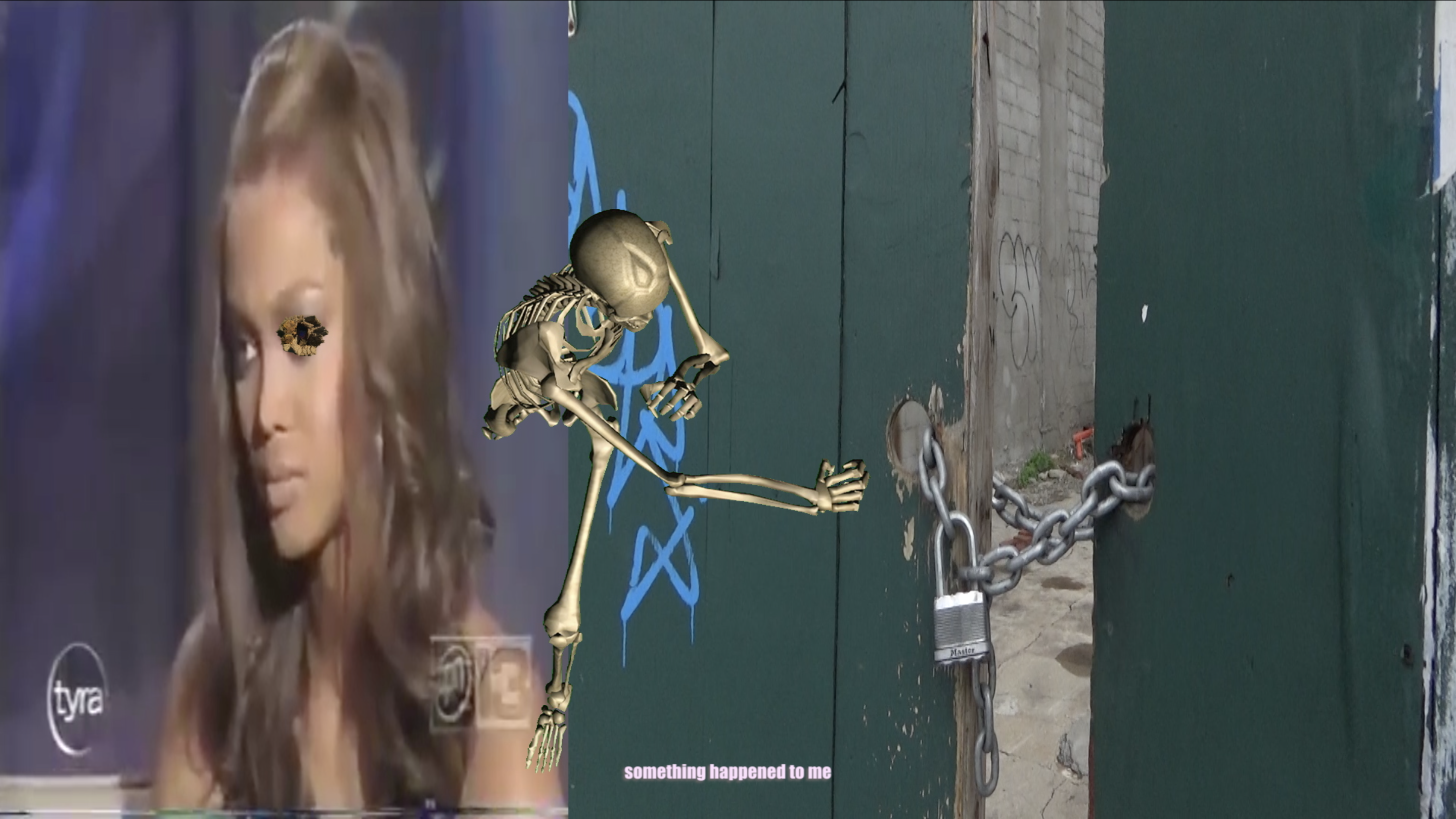
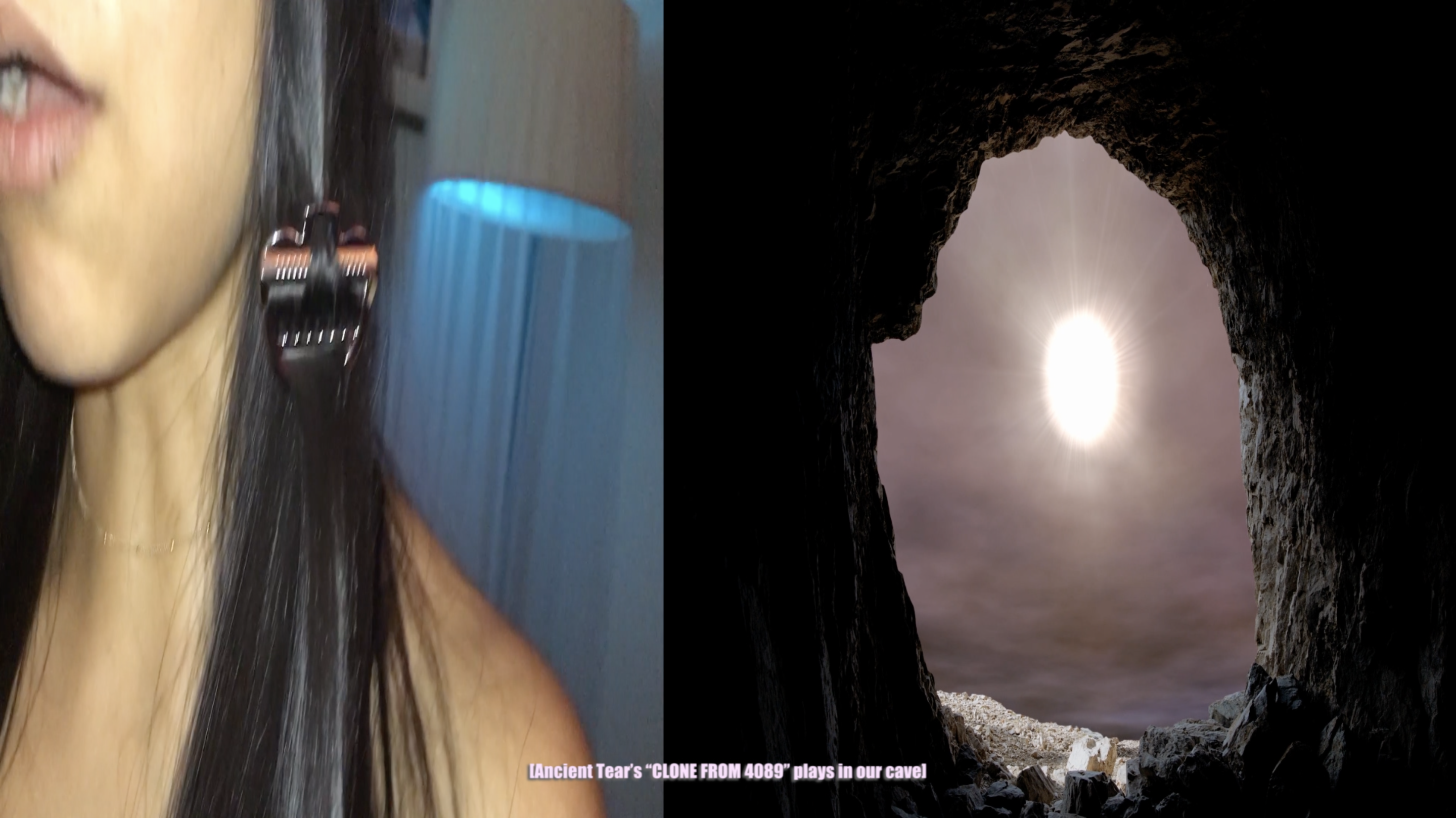
Yeah, I was focusing on balancing male and female, because that’s something I struggle with inside. I’m extremely aggressive and I don’t handle things in a lady-like way sometimes. But then also, I’m a woman, so it’s like, what the fuck? I have to balance and figure that out.
And my cousins are just gems. Avellakaa Aguilar and Virginia Aguilar. I can cry, they’re so beautiful! And they’re just so excited, I love it! They grew up together but hadn’t seen each other for a while before we filmed, so it was really cool to have that explosive energy. It’s just a blessing to be able to see them and to be able to just laugh. We laugh all the goddamn time together at everything. We usually see each other at funerals, but we are still fucking laughing. So I thought it was cool, because like you know, in the clip with Naomi and Tyra, obviously, there’s not a lot of laughing.
There wasn’t even a live studio audience for that!
Yeah, no. Because they were worried shit would pop off. Can you imagine the producer? Oh my god.
But it’s that balance. What I’m talking about is female, male—I don’t want to say energy, but there’s not another fucking word, so I’ll say it. I see it that way, and I see my cousins as this. Maybe because they’re so young. I don’t want to speak for them, but I think they’re starting to explore, do this or that. They’ve been so helpful to me, like teaching me. Every time we bird dance, my cousin Avellakaa is right there telling me what to do and checking on me. It’s that balance. I see it so clearly with them because they are also aggressive—don’t fuck with them. You know what I’m saying? But they’re beautiful women, young women.
What irks me a little bit is when people write about it like, “Oh they’re talking shit.” But it’s like, not really. Like, we’re just saying what happened, it’s like a newsletter. How else is she going to know what you did last week? Or what you’re thinking about if you don’t say it? It’s not necessarily talking shit. We just are passionate, fiery people. Yeah, it’s gonna sound like that, but the whole point was to balance.
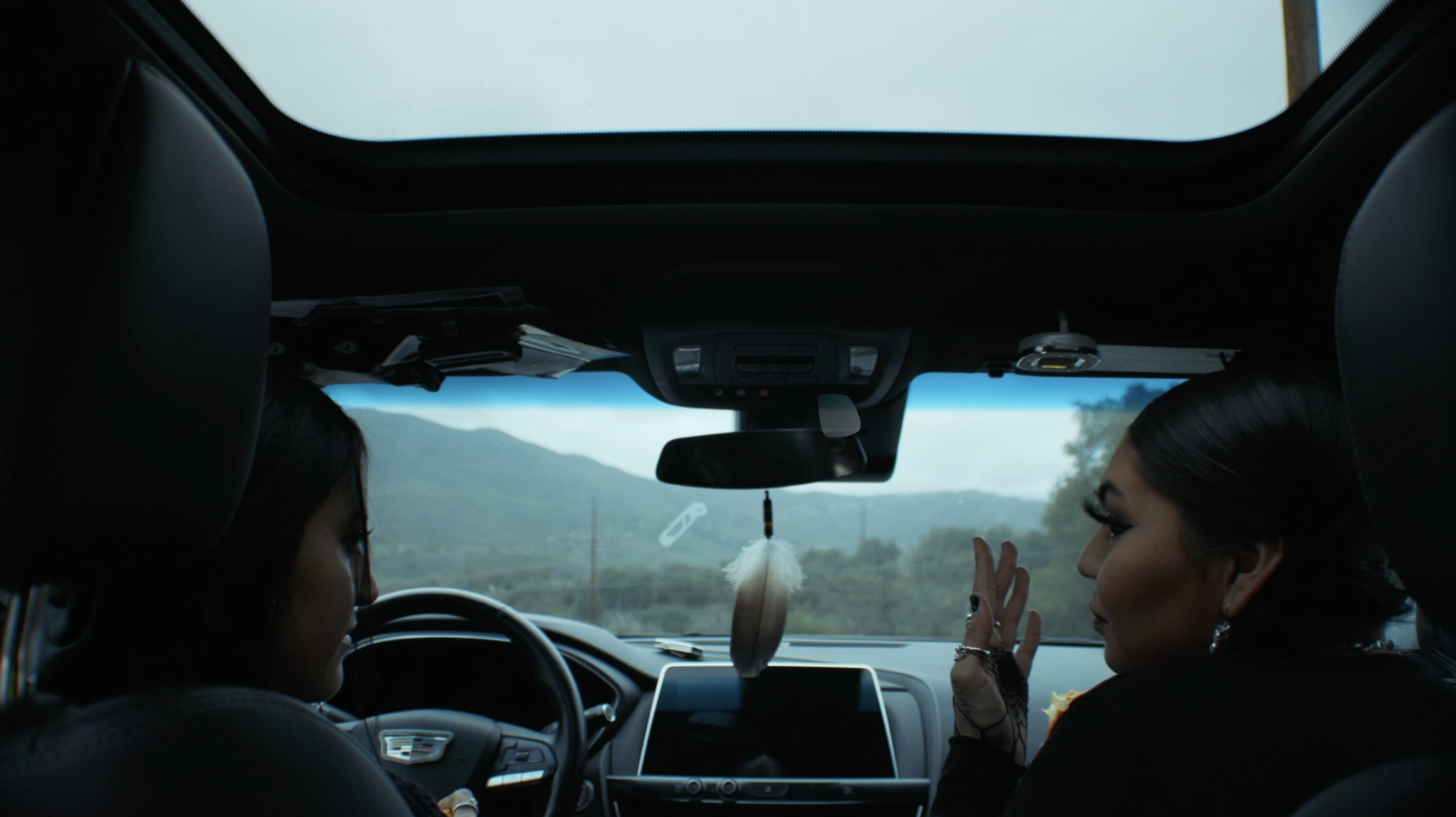
Your films are often described as diaries. They share glimpses from your life and small details you’re noticing—an animal, a little critter, some guy with a beard. It’s these very specific things that in that moment, everything in the universe led you to notice. It’s intimate, these visual secrets! But the strongest intimacy for me lies in the music. There’s annotations for the sounds such as “moody sound collages” along with lyrics at the bottom of the screen. The lyrics and annotations feel like an invitation for people to come closer and sing with the music in your head. It’s almost like karaoke. But it doesn’t feel empty, it feels very emotionally charged. Do you think differently about music and imagery, especially in how you invite disclosure or intimacy?
I make it for me, always. I think that helps a lot, because it’s like, I want to watch this. And I’m always shocked because after I finish a project, I never want to watch it.
And then you have to watch it a hundred times at screenings!
It fills me with joy! I remember sitting there, thinking about what I was wanting to put here, or what I was wanting to say. I remember every single little detail because everything means something to me—the color of something, or if it’s in this corner or that one. Everything is significant and deep. It’s hard for me when people say it’s not that deep. I’m like, How? I’ve never encountered anything that’s not “that deep” ever in my life! Where is it “not that deep?” Where! Tell me where I can go where things are not that deep! I can see it where things are not so serious, I love that! But the deep part is where I like to go.
I’m getting used to making things and releasing them. Yesterday was the first time I saw my work in a theater and wasn’t shaking the whole time, it was crazy! It’s very personal, so it’s very powerful to share that. And I think how cool it is that I can be myself when I’m making these films. If I’m filming something, it’s for myself. You know what I mean? If I’m zooming in on this little leaf, it’s me. I want to do that. I’m doing it for me. There’s literally no other reason to do it. I’m being me. I think movies are the most accessible art form. Make a movie everybody! Hurry up! You know, even if it’s a minute long, make a movie!
Fox Maxy is a filmmaker based in San Diego, CA. Her work has screened at Sundance, MoMA, and Rotterdam. Fox’s upcoming film is about mental health and portals.
Camila Palomino is a curator, researcher, and writer from Queens, NY. She is co-editor of the next issue of Viscose Journal and is Curatorial Assistant at the Vera List Center for Art and Politics.